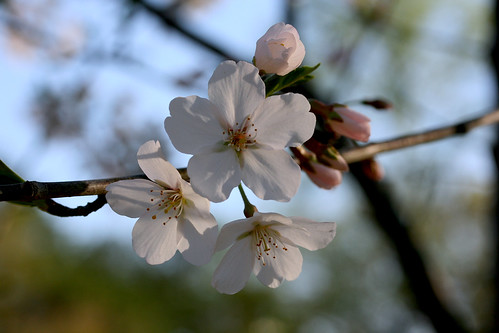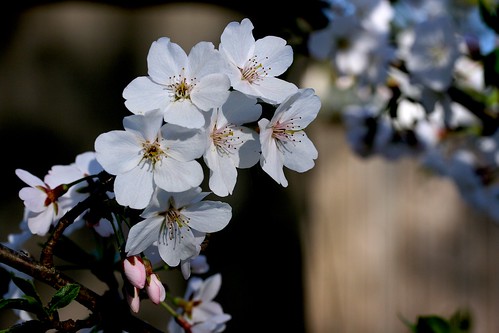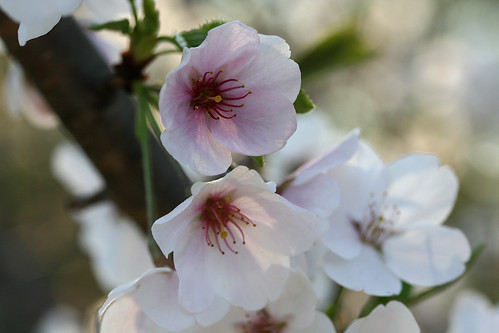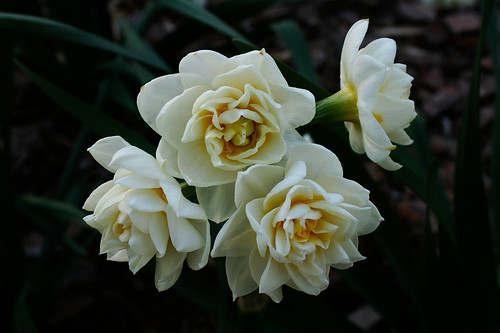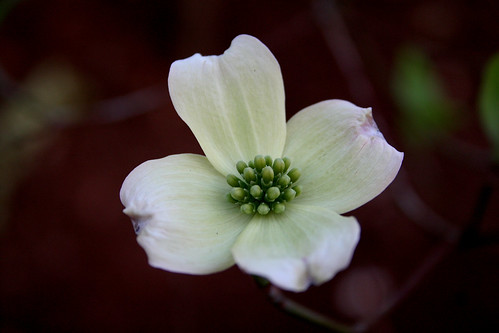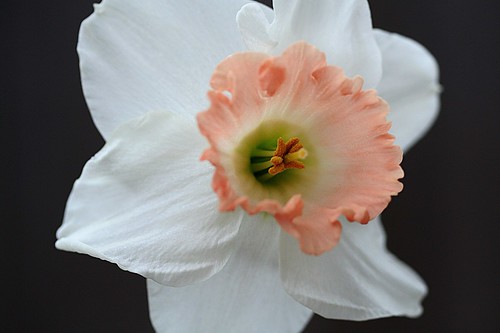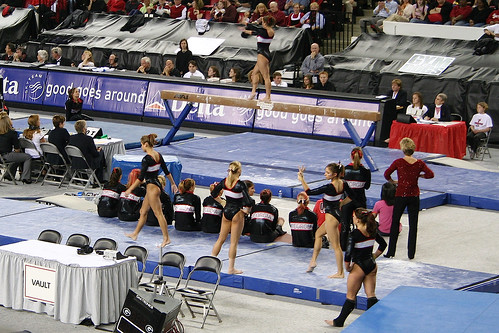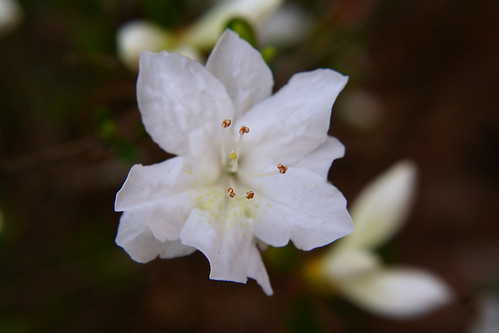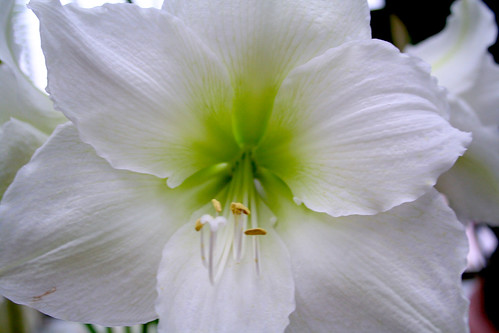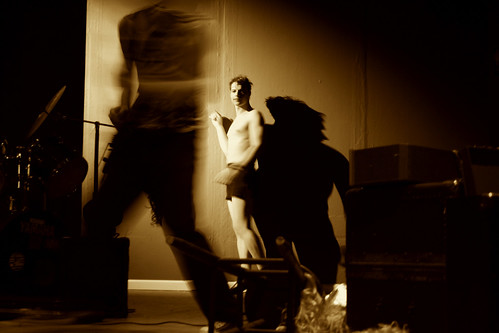Friday, March 30
the Love Song
But the peculiar magic of the Love Song, if it has the heart to do it, is that it endures where the object of the song does not. It attaches itself to you and together you move through time. But it does more than that, for just as it is our task to move forward, to cast off our past, to change and to grow, in short, to forgive ourselves and each other, the Love Song holds within it an eerie intelligence all of its own—to reinvent the past and to lay it at the feet of the present.-- Nick Cave The Secret Life of the Love Song
This, to me, is also the peculiar magic and the secret life of the photograph (if it has the heart for it) as a work of poetic art. There's not only the intimate one-on-one duality between the photographer's psyche and the individual viewer's, a duality that's always a personal landscape filled with hidden elements; but also that duality between the present moment in time and of a precise unrepeatable one in the past. It has nothing to do with medium or analysis or effort, and everything to do with relationship, with connection, with internal fit and corresponding rhythm.
Posted by
rb
at
3/30/2007
![]()
Thursday, March 29
none of them extraordinary
It seems to me that the soul, when alone with itself and speaking to itself, uses only a small number of words, none of them extraordinary. This is how one recognizes that there is a soul at that moment, if at the same time one experiences the sensation that everything else—everything that would require a larger vocabulary—is mere possibility.
-- Paul Valéry, quoted in W.H. Auden's A Certain World
Posted by
rb
at
3/29/2007
![]()
Wednesday, March 28
finding my way home again
It's possible to see such domination of the unexpected in a positive light. So getting lost in the familiar woods around our house and finding my way home again adds a twist of excitement to days that might seem circumscribed or routine because of my disability. When the natural food grocery where we shop rearranged its entire stock, I was one of the few customers who didn't mind, since I could never remember where things were anyway. I am more deliberate than I was; being attentive, purposeful in movement, lends my life an intensity of awareness that was not always present before. My senses are heightened, their fine-tuning mechanism busted: spicy food, stargazer lilies in bloom, birdsong, heat, my wife's vivid palette when she paints have all become more intense and stimulating. Because it threatens my balance, a sudden breeze stops me, so its strength and motion can register. Attentiveness may not guarantee success—as my pratfall in Carlton indicates—but it does allow me to appreciate detail and nuance.
One way of spinning this is to say that my daily experience is often spontaneous and exciting. Not fragmented and intimidating, but unpredictable, continuously new. I may lose track of things, or of myself in space, my line of thought, but instead of getting frustrated I try to see this as the perfect time to stop and figure out what I want or where I am. I accept my role in the harlequinade. It's not so much a matter of making lemonade out of life's lemons, but rather of learning to savor the shock, taste, texture, and aftereffects of a mouthful of unadulterated citrus.
-- Floyd Skloot In the Shadow of Memory
Floyd Skloot
Posted by
rb
at
3/28/2007
![]()
Monday, March 26
consonance and discord
A glance at music may drive the argument home. If musical harmony were concerned only with the rules of what sounds well together, it would be limited to a kind of aesthetic etiquette. Instead of telling the musician by what means he can express what, it would teach him only how to behave. Actually this aspect of musical harmony has proved to be of no permanent value, because it is dependent on the taste of the period. Effects that were forbidden in the past are welcome today. This is precisely what has happened to certain norms of color harmony even with a few decades. For example, Ostwald, commenting in 1919 on the rule that saturated colors must be presented only in small bits, asserted that large-sized surfaces of pure vermilion, as found in Pompeii, are crude, "and all the blindly superstitious belief in the artistic superiority of the 'ancient' has been unable to keep attempts at the repetition of such atrocities alive." In reading this today, we may remember a painting of Matisse in which six thousand square inches of canvas are covered almost completely and quite satisfactorily with a strong red, and conclude that the proposed norm was nothing but the expression of a temporary fashion.
But—to come back to music—the rules of theory are hardly concerned with such matters. Arnold Schönberg says, in his Theory of Harmony: "the subject matter of the doctrine of musical composition is usually divided in three areas: harmony, counterpoint, and the theory of form. Harmony is the doctrine of the chords and their possible connections with regard to their tectonic, melodic, and rhythmic values and relative weight. Counterpoint is the doctrine of the movement of voices with regard to motivic combination . . . The theory of form deals with the disposition for the construction and development of musical thoughts." In other words, musical theory is not concerned with what sounds nicely together, but with the problem of how to give adequate shape to an intended content. The need for everything to add up to a unified whole is only one aspect of this problem, and it is not satisfied in music by drawing the composition from an assortment of elements that blend smoothly in any combination.
To state that all colors contained in a pictorial composition are part of a simple sequence derived from a color system would mean no more—even though perhaps no less—than to say that all the tones of a certain piece of music fit together because they belong to the same key. Even if the statement were correct, still next to nothing would have been said about the structure of the work. We should not know what parts it consists of and how these parts are related to each other. Nothing would be known about the particular arrangement of the elements in space and time; and yet it is true that one and the same assortment of tones will make a comprehensible melody in one sequence and a chaos of sounds when shuffled at random, just as one and the same group of colors will produce a senseless jumble in one arrangement and an organized whole in another. Also it goes without saying that composition requires separations just as much as connections, because when there are no segregated parts there is nothing to connect, and the result is an amorphous mash. It is useful to remember that the musical scale is suited to serve as the composer's "palette," precisely because its tones do not all fit together in easy consonance but provide discords of various degrees as well. The traditional theory of color harmony deals only with obtaining connections and avoiding separations, and is therefore at best incomplete.
-- Rudolf Arnheim Art and Visual Perception
Posted by
rb
at
3/26/2007
![]()
thought of night
Just think of it, and you
surround it with
its opposite. That's thought's
domain. Take here
and now, for instance.
Do we see a line where there
is none? We draw
up sides, forgetting how in cells
division made things whole. To me
I'm complete, but I'm partial to you.
*
So as we fall
into the night (which isn't,
after all is said and done,
the opposite of day) I cannot see
our differences. Love mends
the broken language. We are each
the first of persons (though I know
I mustn't speak for two). I only mean
I feel myself again,
and it's you
-- Heather McHugh
Posted by
rb
at
3/26/2007
![]()
Sunday, March 25
Saturday, March 24
flower shadows
In rows and heaps
The blossoms crowd
Upon the jade-green terrace.
Several times have I summoned my boy
To sweep them away.
His efforts have had but small success,
For no sooner does the sunset
Carry them off
Than the bright moon,
Rising,
Gathers and brings them again.
-- Su Dongpo
Translated by Henry Hart
Posted by
rb
at
3/24/2007
![]()
Friday, March 23
As Once the Wingèd Energy of Delight
As once the wingèd energy of delight
carried you over childhood's dark abysses,
now beyond your own life build the great
arch of unimagined bridges.
Wonders happen if we can succeed
in passing through the harshest danger;
but only in a bright and purely granted
achievement can we realize the wonder.
To work with Things in the indescribable
relationship is not too hard for us;
the pattern grows more intricate and subtle,
and being swept along is not enough.
Take your practiced powers and stretch them out
until they span the chasm between two
contradictions...For the god
wants to know himself in you.
-- Rainer Maria Rilke
Translated by Stephen Mitchell
Posted by
rb
at
3/23/2007
![]()
Thursday, March 22
New Colors Coming

Color your dreams, not like a baby.
You can see further.
Of course, most paintings are about paint,
and it takes ignorant poets to claim
there are new colors coming:
colors like on a bubble bursting,
colors left when the invisible dries up.
Homer thought the Black Sea really was,
yet the Pacific was blue for Balboa
and, looking out at Catalina,
I'd say it's getting brighter.
The Hopi said the rainbows are growing.
Me, I'm eager for the nights more colored;
I imagine us all sitting transfixed
as by firelight
by things that now seem black.
I imagine me on my knees. I'm on my knees.
I imagine me standing, seeing further.
I imagine signs of life, unfinished.
I imagine man.
I imagine the light of man.
-- Randall Goodall, from The Rainbow Book, ed. F. Lanier Graham
This is a repeat of a post from last year. "New Colors Coming" has long been one of my favorite poems.
Posted by
rb
at
3/22/2007
![]()
Wednesday, March 21
what is it?
Here is the efflux of the soul,
The efflux of the soul comes from within through embower'd gates, ever provoking questions,
These yearnings why are they? these thoughts in the darkness why are they?
Why are there men and women that while they are nigh me the sunlight expands my blood?
Why when they leave me do my pennants of joy sink flat and lank?
Why are there trees I never walk under but large and melodious thoughts descend upon me?
(I think they hang there winter and summer on those trees and always drop fruit as I pass;)
What is it I interchange so suddenly with strangers?
-- Walt Whitman, from "Song of the Open Road"
Song of the Open Road
Posted by
rb
at
3/21/2007
![]()
Tuesday, March 20
a congeries of innumerable stars
Every culture has had an explanation for the Milky Way, that band of milky light that circles the sky from Orion to Sagittarius and back again, arching high on summer and winter evenings, hanging low near the horizon in spring and fall. A bridge. A river. The pathway of the spirits of the dead. A circular cord of downy feathers. A track of cornmeal. In the National Gallery in Washington, D.C., is a painting by Tintoretto, titled The Origin of the Milky Way, that depicts the Greek view of things: Milk spurts into the sky from the breasts of the goddess Juno as she tries to nurse the lively infant Hercules.
Galileo's telescope put such fabulous stories to rest. In his little book The Starry Messenger, he reported his observations: "For the galaxy is nothing else than a congeries of innumerable stars distributed in clusters. To whatever region of it you direct your spyglass, an immense number of stars immediately offer themselves to view." Not milk—nor feathers, nor cornmeal—but "congeries of innumerable stars." The evidence, as Galileo said, was indisputable. But astronomers for the next few centuries had other things on their minds besides those swarms of faint stars. Sun, Moon, planets, comets: their interests lay closer to home. Not until William Herschel turned his big new telescopes toward the stars in the late 1700s did the Milky Way again become an object of astronomical interest. Herschel plotted the positions of thousands of faint stars in three dimensions . . . We live in a disk-shaped cloud of stars, he concluded—a "grindstone," he called it—and he guessed that some of the other "fuzzy spots" in the sky were other Milky Ways of stars. We now know that he got it mostly right.
-- Chet Raymo An Intimate Look at the Night Sky
Posted by
rb
at
3/20/2007
![]()
Monday, March 19
performance
But the book of a play or the score of a symphony, however cumbered with stage-directions, expression-marks, metronome figures, and so forth, cannot possibly indicate in every detail how the work is to be performed. Tell the performer that he must perform the thing exactly as it is written, and he knows you are talking nonsense. He knows that however much he tries to obey you, there are still countless points he must decide for himself.
-- R.G. Collingwood The Principles of Art
R.G. Collingwood
Posted by
rb
at
3/19/2007
![]()
Saturday, March 17
Friday, March 16
every blade of grass
Every blade of grass has its angel that bends over it and whispers, "Grow, grow."
-- The Talmud
Posted by
rb
at
3/16/2007
![]()
Thursday, March 15
Wednesday, March 14
behind the veil
We have seen that when the earth had to be prepared for the habitation of man, a veil, as it were, of intermediate being was spread between him and its darkness, in which were joined, in a subdued measure, the stability and insensibility of the earth, and the passion and perishing of mankind.
But the heavens, also, had to be prepared for his habitation.
Between their burning light,—their deep vacuity, and man, as between the earth's gloom of iron substance, and man, a veil had to be spread of intermediate being;— which should appease the unendurable glory to the level of human feebleness, and sign the changeless motion of the heavens with a semblance of human vicissitude.
Between the earth and man arose the leaf. Between the heaven and man came the cloud. His life being partly as the falling leaf, and partly as the flying vapour.
-- John Ruskin Modern Painters
more Modern Painters
Posted by
rb
at
3/14/2007
![]()
Monday, March 12
some nut with a raincoat and a hat
Now I was wandering in the very dark, in the fog, everything was closing down. Hoodlums roared by in small cars and some on motorcycles. Some stood on corners. I asked everybody where there was a hotel. Now they didnt even know. Gettin on 3 A.M. Groups of hoodlums came and went across the street from me. I say "hoodlums" but with everything closed, the final music joint already discharging a few wrangling customers who bellowed confusedly around cars, what was left i' the streets?
Miraculously, yet, I suddenly passed a band of twelve or so Naval inductees who were singing a martial song in chorus on the foggy corner. I went right up to em, looked at the head singer, and with me alcoholic hoarse baritone went "A a a a a a h"
—They waited—
"V é é é é"
They wondered who this nut was.
"M a h – r e e e e e – ee — ee — aaaah!"
Ah, Ave Maria, on the next notes I knew not the words but just sang the melody and they caught on, caught up the tune, and there we were a chorus with baritone and tenors singing like sad angels suddenly slowly—And right through the whole first chorus—In the foggy foggy dew—Brest Brittany—Then I said "Adieu" and walked away. They never said a word.
Some nut with a raincoat and a hat.
-- Jack Kerouac (b. 12 March 1922) Satori in Paris
Posted by
rb
at
3/12/2007
![]()
Friday, March 9
submarine foliage of language
The landscape opens its eyes and sits up,
sets out walking followed by its shadow,
it is a stela of dark murmurs
that are the languages of fallen matter,
the wind stops and hears the clamor of the elements,
sand and water talking in low voices,
the howl of pilings as they battle the salt,
the rash confidence of fire,
the soliloquy of ashes,
the interminable conversation of the universe.
Talking with the things and with ourselves
the universe talks to itself:
we are its tongue and ears, its words and silences.
The wind hears what the universe says
and we hear what the wind says,
rustling the submarine foliage of language,
the secret vegetation of the underworld and the undersky:
man dreams the dream of things,
time thinks the dream of men.
-- Octavio Paz, from "A Wind Called Bob Rauschenberg"
Translated by Eliot Weinberger
Posted by
rb
at
3/09/2007
![]()
Thursday, March 8
body and soul
Man has no Body distinct from his Soul;
for that called Body is a portion of soul
discern'd by the Five Senses, the chief inlets
of Soul in this age.
-- William Blake The Marriage of Heaven and Hell
Posted by
rb
at
3/08/2007
![]()
Wednesday, March 7
Tuesday, March 6
golden peaks
The atmosphere is so clear in Antarctica that one is easily deceived by distances; mountains that seem no more than fifty miles away may in fact be two hundred. And in the absence of haze the colors of distant objects are not like those in other parts of the world. In Antarctica mountains seen at a distance appear yellow rather than blue. Away to the east, as we entered the Gerlache Strait, I saw behind the jagged, lavender-tinted profile of the coastal mountains, the curving surface of the icefield, an expanse of yellow and salmon pink; and far to the south, beyond the end of the strait, rose the peninsula's distant yellow peaks, wonderfully distinct even though they were in fact a hundred miles away. At times when our view of the foreground was darkened or cut off by cloud and mist, the peaks farthest away were still visible in the bright sunlight that illuminated them, suggesting to me, as we passed the narrower reaches of the strait, a secret gateway to some elysian region.
-- Eliot Porter Antarctica
Eliot Porter
Marguerite Bay, Antarctica, March 1976 by Eliot Porter
Posted by
rb
at
3/06/2007
![]()
Monday, March 5
impression of life
One goes to the theatre to find life, but if there is no difference between life outside the theatre and life inside, then theatre makes no sense. There's no point doing it. But if we accept that life in the theatre is more visible, more vivid than on the outside, then we can see that it is simultaneously the same thing and somewhat different . . . Life in the theatre is more readable and intense because it is more concentrated. The act of reducing space and compressing time creates a concentrate . . . The compression consists of removing everything that is not strictly necessary and intensifying what is there . . . whilst preserving the impression of spontaneity. If this impression is maintained, we reach the point where if in life it takes two people three hours to say something, on stage it should take three minutes. We can see this result clearly in the limpid styles of Beckett, Pinter or Chekhov.
With Chekhov, the text gives the impression of having been recorded on tape, of taking its sentences from daily life. But there is not a phrase of Chekhov's that has not been chiseled, polished, modified, with great skill and artistry so as to give the impression that the actor is really speaking "like in daily life." However, if one tries to speak and behave just like in daily life, one cannot play Chekhov. The actor and the director must follow the same process as the author, which is to be aware that each word, even if it appears to be innocent, is not so. It contains in itself, and in the silence that precedes and follows it, an entire unspoken complexity of energies between the characters. If one can manage to find that, and if, furthermore, one looks for the art needed to conceal it, then one succeeds in saying these simple words and giving the impression of life. Essentially it is life, but it is life in a more concentrated form, more compressed in time and space.
-- Peter Brook The Open Door
Posted by
rb
at
3/05/2007
![]()
Friday, March 2
Arrival
While the years were mine I walked the high country
with a thought for a friend: Somewhere, somewhere.
And I heard the wind in its desperate quiet
smuggling winter through the dark forest.
I saw leaves massacred in autumn,
and their places taken by the stars at night.
In all the world no place was mine
because I was driven like the other things.
But then I found the tumbleweed secret,
bounding along saying, "Where is my home?"
And the voices began to come at night,
warning, "We're lost—don't be like us."
So when someone is near I reach out for them,
knowing how far it is when you're alone—
How out in space you finally accept
what has to be: Anywhere, anywhere.
-- William Stafford
William Stafford
Posted by
rb
at
3/02/2007
![]()
Thursday, March 1
Wynken, Blynken, and Nod
Wynken, Blynken, and Nod one night
Sailed off in a wooden shoe---
Sailed on a river of crystal light,
Into a sea of dew.
"Where are you going, and what do you wish?"
The old moon asked the three.
"We have come to fish for the herring fish
That live in this beautiful sea;
Nets of silver and gold have we!"
Said Wynken,
Blynken,
And Nod.
The old moon laughed and sang a song,
As they rocked in the wooden shoe,
And the wind that sped them all night long
Ruffled the waves of dew.
The little stars were the herring fish
That lived in that beautiful sea---
"Now cast your nets wherever you wish---
Never afeard are we";
So cried the stars to the fishermen three:
Wynken,
Blynken,
And Nod.
All night long their nets they threw
To the stars in the twinkling foam---
Then down from the skies came the wooden shoe,
Bringing the fishermen home;
'T was all so pretty a sail it seemed
As if it could not be,
And some folks thought 't was a dream they 'd dreamed
Of sailing that beautiful sea---
But I shall name you the fishermen three:
Wynken,
Blynken,
And Nod.
Wynken and Blynken are two little eyes,
And Nod is a little head,
And the wooden shoe that sailed the skies
Is a wee one's trundle-bed.
So shut your eyes while mother sings
Of wonderful sights that be,
And you shall see the beautiful things
As you rock in the misty sea,
Where the old shoe rocked the fishermen three:
Wynken,
Blynken,
And Nod.
-- Eugene Field
Posted by
rb
at
3/01/2007
![]()





